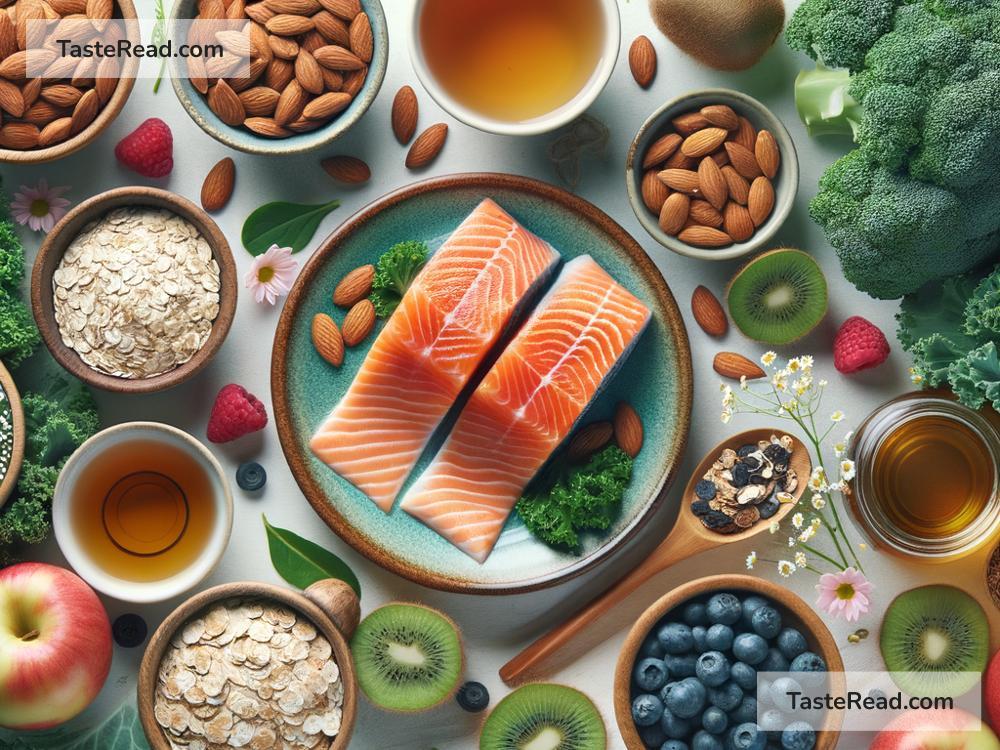Foods for Reducing Sleep Apnea: A Simple Guide
Sleep apnea is a condition that affects your breathing during sleep, causing pauses or shallow breaths. It can make you feel tired during the day, increase the risk of other health problems like heart disease, and lower your overall quality of life. The good news is that your diet can play a role in helping manage sleep apnea. While food alone won’t cure the condition, eating the right types of foods may reduce symptoms and improve your breathing at night. Let’s take a look at how you can eat your way to better sleep.
What Is Sleep Apnea?
Sleep apnea happens when your throat muscles relax too much during sleep, blocking your airway. This is known as obstructive sleep apnea, which is the most common type. Another form, central sleep apnea, occurs when the brain doesn’t send proper signals for breathing. If left untreated, sleep apnea can lead to serious health issues like high blood pressure, diabetes, and even stroke.
One factor that contributes to sleep apnea is being overweight or obese. Excess weight adds pressure to the throat muscles and makes it harder to breathe at night. This is where your food choices can really make a difference.
How Food Influences Sleep Apnea
Certain foods can support weight loss, reduce inflammation, and improve overall airway function—all of which can help manage sleep apnea symptoms. While there’s no magic formula, eating a balanced, nutrient-rich diet and avoiding certain “problem foods” may improve sleep quality.
Foods That Help Reduce Sleep Apnea Symptoms
Here’s a breakdown of the best foods you can include in your diet to support better breathing during sleep.
1. Fruits and Vegetables
Fruits and vegetables are packed with vitamins, minerals, and antioxidants. These nutrients reduce inflammation in the body, including the airways. They also improve overall health and are great for weight loss.
- Examples: Leafy greens like spinach, kale, broccoli, berries (blueberries, strawberries, raspberries), oranges, and apples.
- How They Help: Reducing inflammation helps keep your airway healthy and may reduce obstruction at night.
2. Healthy Fats
Healthy fats, such as omega-3 fatty acids, improve heart health and reduce inflammation. These fats are found in foods like fish, nuts, seeds, and avocados.
- Examples: Salmon, tuna, walnuts, chia seeds, flaxseeds, and olive oil.
- How They Help: Omega-3s promote better circulation and support the respiratory system, which can help with smoother breathing.
3. Whole Grains
Whole grains, like oats and quinoa, are rich in fiber, which keeps you feeling full longer and supports weight loss. Maintaining a healthy weight reduces pressure on your throat muscles and lessens the severity of sleep apnea.
- Examples: Brown rice, whole wheat bread, whole-grain pasta, and barley.
- How They Help: Whole grains reduce spikes in blood sugar, stabilize energy levels, and encourage healthy weight management.
4. Legumes
Beans, lentils, and peas are excellent sources of protein and fiber, making them ideal for weight loss without relying on red meat. High fiber content also fights inflammation.
- Examples: Black beans, chickpeas, lentils, and kidney beans.
- How They Help: Protein supports muscle health, and fiber promotes a healthy gut, both of which are connected to better sleep quality.
5. Low-Fat Dairy Products
If you enjoy dairy, opt for low-fat versions. Full-fat dairy may worsen inflammation, whereas low-fat dairy provides calcium and protein without the added fat.
- Examples: Yogurt, skim milk, and low-fat cheese.
- How They Help: Calcium can improve muscle relaxation, which may support better breathing during sleep.
6. Herbs and Spices
Certain herbs and spices have anti-inflammatory and soothing properties that can help reduce airway irritation.
- Examples: Ginger, turmeric, garlic, cinnamon, and peppermint.
- How They Help: These remedies may alleviate congestion and make breathing easier.
Foods to Avoid
Just as certain foods can help reduce sleep apnea symptoms, others can make it worse. Here’s a list of foods to steer clear of:
1. Processed Foods
Highly processed foods, like chips, sugary snacks, and fast food, are often high in trans fats and refined carbs. These can promote weight gain and worsen inflammation.
2. Alcohol
Drinking alcohol before bed can relax your throat muscles even further, increasing the likelihood of airway blockage.
3. Caffeine
Caffeine can disturb your sleep patterns, especially if consumed in the evening. Poor sleep quality can make sleep apnea symptoms more noticeable.
4. High-Sodium Foods
Foods high in salt, like canned soups and salty snacks, can cause water retention and worsen bloating around the throat.
Other Tips for Managing Sleep Apnea
In addition to eating the right foods, here are some extra tips to help improve sleep apnea symptoms:
– Stay Hydrated: Drinking plenty of water prevents your airways from becoming dry or irritated.
– Exercise Regularly: Physical activity supports weight loss and muscle tone in your throat.
– Sleep on Your Side: Sleeping on your side instead of your back may prevent airway blockage.
Final Thoughts
Sleep apnea can be challenging, but making simple changes to your diet can help reduce symptoms and improve your sleep quality. Focus on eating fruits, vegetables, whole grains, and foods high in healthy fats while avoiding processed foods, alcohol, and excess salt. Pair your diet with regular exercise and good sleep habits, and you’ll be on your way to breathing better and feeling more energized.
Remember, while diet can play a big role, always consult a doctor for personalized treatment options. Sleeping well starts with taking small steps—one bite at a time!


